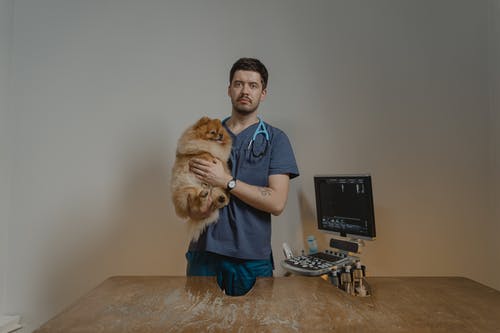When it comes to our furry companions, we all want them to live a long, happy, and healthy life. Regular visits to the vet play a crucial role in achieving this goal. Yet, many pet owners wonder how often they should schedule routine exams for their dogs or cats. Let’s delve into the recommendations and benefits of timely veterinary assessments.
What Are Routine Exams?
Routine exams, called wellness checks, are your vet’s general health assessments on your pet. These checks are key to preventative health care and can help identify potential health issues before they become serious. A typical routine exam may include:
- Evaluation of the pet’s overall physical condition
- Weight check to monitor for obesity or sudden weight loss
- Examination of the animal’s coat, eyes, ears, and mouth
- Checking joints and muscles for any signs of pain or arthritis
- Listening to the heart and lungs
- Palpation of the abdomen to check internal organs
Annual Exams for Dogs and Cats
The general guideline for most dogs and cats is to have an annual vet checkup. However, the frequency of these visits might vary based on age, breed, health status, and lifestyle.
- Puppies and Kittens: Young pets should visit the vet several times during their first year. These appointments are crucial for initial vaccines, parasite control, and monitoring development.
- Adult Pets: Once pets reach adulthood, annual exams are recommended. During these visits, vets often update necessary vaccines and continue to monitor health and body condition.
- Senior Pets: Older dogs and cats may require more frequent visits, such as biannual exams, due to the increased risk of health issues with age.
Biannual Exams for At-Risk Pets
Some dogs and cats might need more frequent exams. For example, pets with chronic conditions, like diabetes or heart disease, pets that have previously experienced serious health issues, or breeds prone to certain hereditary conditions might benefit from biannual exams.
More frequent visits allow for closer monitoring and adjustment of treatments as needed, ensuring the best possible management of your pet’s health.
Preventative Care and Early Detection
Routine exams are the cornerstone of preventative care. They enable early detection of diseases, which often leads to more effective treatment. Vaccinations, deworming, and flea and tick control are just a few aspects that can be covered during these checkups.
Special Considerations for Dogs
Dogs are often more exposed to the outdoors than cats, which may increase their risk of encountering diseases, parasites, and injuries. Thus, their lifestyle can significantly influence the frequency of vet visits. For instance, active breeds or those that frequent dog parks might need additional preventative care.
Behavioral Assessment
Routine exams are also an opportunity to discuss any behavioral concerns. Changes in behavior can be indicators of underlying health issues, and early intervention is key to providing the proper care or training.
Special Considerations for Cats
While cats may often seem self-sufficient, they are adept at hiding illnesses. Routine exams are particularly important for feline friends as they can help uncover hidden ailments.
- Indoor vs. Outdoor: Outdoor cats may require more frequent monitoring for injuries or infections picked up from the environment.
- Dental Health: Cats are prone to dental issues, which should be checked regularly since they can impact overall health.
Understanding Vaccination Timelines
Vaccines are vital to a pet’s health regimen, but the schedules can vary. Your vet can create a personalized vaccine timeline during your pet’s exams, ensuring they’re protected without over-vaccination.
The Role of a Veterinary Clinic
Choose a veterinary clinic that understands your pet’s needs and offers comprehensive care. When looking for services like a vet checkup in Corpus Christi, TX, find a clinic that provides thorough exams and discussions about your pet’s health and lifestyle.
When Surgery May Be Necessary
Occasionally, routine exams may reveal the need for further intervention, such as dog and cat surgery. Whether it’s a routine spay/neuter or something more complex, timely detection during a checkup can be lifesaving.
Navigating Vaccines for Optimal Health
Vaccinations are integral to your pet’s health regime, and understanding when to administer vaccines for cats and dogs is essential. Your vet can provide a detailed plan based on your pet’s needs.
More Than Just a Checkup
Routine exams are an investment in your pet’s long-term well-being. They’re a time to build a relationship with your vet, gain valuable knowledge about your pet’s health, and take proactive steps toward prevention and treatment. Your vet can be your partner in ensuring your furry family member enjoys a vibrant, healthy life.
Final Thoughts
Scheduling routine exams for your pets is a crucial aspect of responsible pet ownership. While annual exams are standard for many dogs and cats, your pet’s specific needs may require a more tailored approach. By attending regular vet visits, you’re ensuring a higher quality of life for your beloved companions, catching potential problems early, and keeping them active in your family for years to come.


